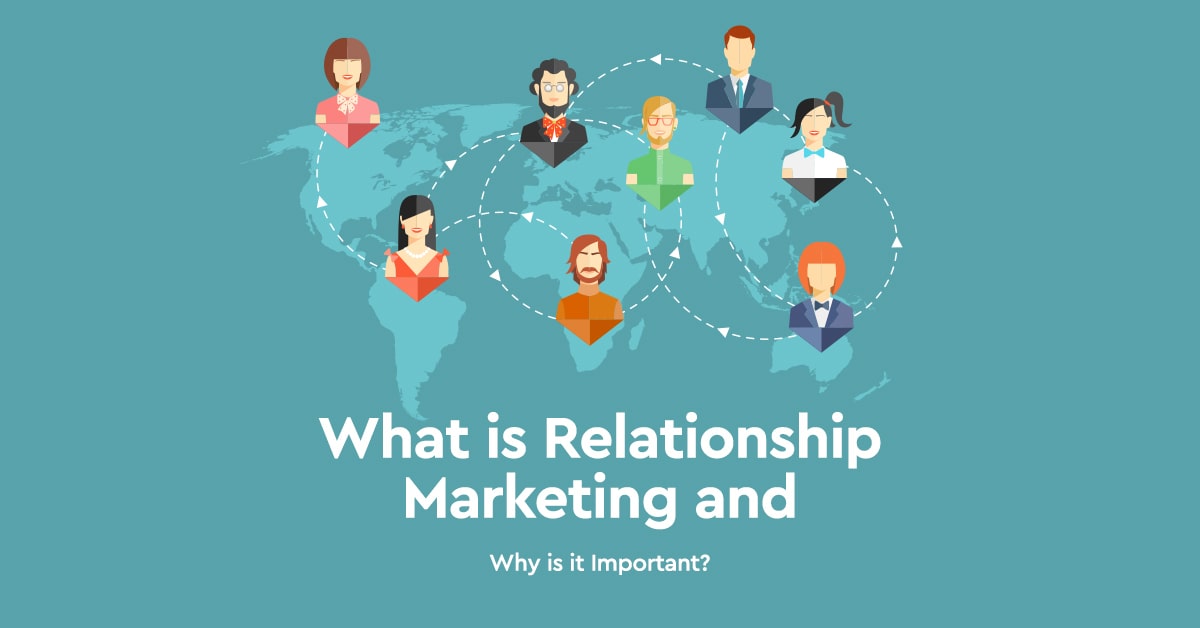What is Relationship Marketing and Why is it Important?

Relationship marketing isn’t a new concept. But in an interconnected world where people are ironically becoming disconnected from each other, relationship marketing may be what it takes for your business to be on a new level.
Sending customers bonuses via direct mail, delivering personalized content through email, and offering discounts and travel perks using a multichannel referral program— these are examples of companies cultivating a deeper relationship with their customers through relationship marketing.
Relationship marketing isn’t entirely new. In fact, many businesses survive because of their ability to cultivate and nurture meaningful relationships with their customers. Simple acts such as giving discounts to repeat customers or offering the freshest produce to loyal customers are common examples of relationship marketing.
What Is Relationship Marketing?
Relationship marketing is a strategy that focuses on building long-term personal connections with customers. It does this by ensuring that customers are constantly engaged, customer satisfaction is high, and customer churn is low.
Multiple studies have observed that a 5% increase in customer retention efforts can yield an increase in company revenues by as much as 95%. Because the cost of retaining customers is significantly lower than acquiring new customers, many businesses rely on relationship marketing as a cost-effective strategy for growth.
How Relationship Marketing Works
There are many theories that try to explain how relationship marketing works. One of the common explanations is that customers go through a lifecycle process from discovering the brand to becoming an advocate of that brand.
Stage 1: Discovery
The customer has an identified need that they seek to address when they discovered or remembered your product.
Stage 2: Evaluation
The customer evaluates all the product options and marketing channels available to them. A unique selling proposition (USP) or a competitive advantage such as price, product quality, or accessibility may lead the customer to narrow down their choices to a single brand or two.
Stage 3: Purchase
The customer then makes a purchase decision, which may or may not lead to immediate use or experience.
Stage 4: Use or Experience
Here, the customer tries the product or service. An experience is formed upon the use of the product or receiving the service.
Stage 5: Bond
A good experience may lead the customer to purchase the product or pay for the service again. A bad experience may discourage the customer from buying ever again and may lead them to choose the competitor(s) whenever a need arises.
Stage 6: Advocacy
Happy, loyal customers tend to encourage others through word of mouth or word of social to try and purchase the brand’s product(s). They act as advocates of the brand or product by telling others directly or even through their own social media campaigns.
Advocates also tend to be very honest about their thoughts and insights about your brand— all without the huge risk of them leaving. So make sure to take advantage of their insights to grow your business or improve your brand.
Relationship marketing emphasizes delivering an experience that customers would enjoy. They often do this by providing valuable, personalized, and relevant services that fit the customer’s needs and requirements even at the start of the customer journey. When customers have an accumulation of good experiences throughout their journey, it helps them become advocates for the brand fast.
Benefits Of Relationship Marketing
There are many benefits of relationship marketing. Among them are the following:
Improved ROI
Relationship marketing improves sales, increases customer retention while driving down acquisition costs. This allows businesses to have improved return on investment (ROI) in the long run.
Increased customer retention
When businesses focus on building relationships, they tend to prioritize customer experience which helps customers remember them in a positive way. So the next time a need arises, they go back to the brand to make a purchase.
This results in increased customer retention, where customers actively make a choice to regularly buy from the same brand over time.
Better brand awareness
Relationship marketing helps businesses create more brand ambassadors, which spread the word fast about the brand on the market. This results in better brand awareness for the brand, at a minimal cost.
Better brand reputation
Aside from increased brand awareness, relationship marketing can also result in a better brand reputation. This is where potential customers trust the brand easily, making it quicker for them to choose the brand over competing brands.
How to Get Started with Relationship Marketing
The best way to get started with relationship marketing, especially online, is to use tools like CRM platforms.
CRMs let you collect, sort, and retrieve information about your customers easily. They also have features like automation that lets the software perform tasks automatically, with minimal human input.
This lets businesses run tasks fast and quickly, all while delivering personalized services to their customers. A proven method for customer retention and increased sales.
Want to know more about CRMs and how you can use them to implement a relationship marketing strategy? Contact our support team and get started here.
Curious how digital ecosystems can help improve your business?
Check out how digital ecosystems can boost your company performance by getting started here.
Book a Demo